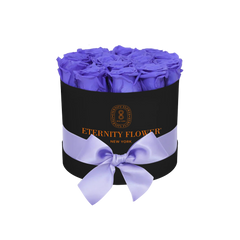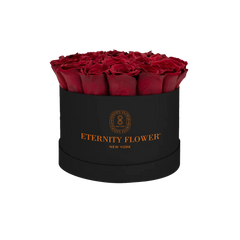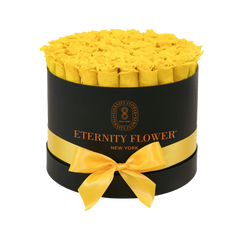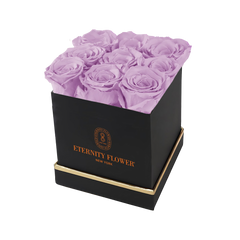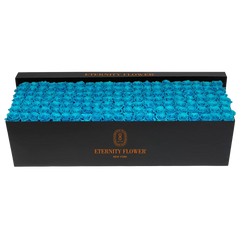Ah, roses! Symbols of love, passion, and the sheer beauty of nature. But as we lay them gracefully on our tables or grow them in our gardens, one question pops up for our canine companions: "Are roses toxic to dogs?" Let's unroot this blooming concern.
Read More: History of Roses: Flower with Rich History and Cultural Significance
Are Roses Really Toxic to Dogs?

In a nutshell, the rose petals and blooms themselves are non-toxic to dogs. So, if your furry friend decides to have a nibble or two, there's no need to hit the panic button just yet. However, it's essential to understand that while the petals aren't harmful, the thorns can pose a danger. They may cause physical harm if ingested or even simply played with.
Should your canine buddy tangle with a rose bush and get scratched, it's crucial to ensure their well-being. Be on the lookout for thorns stuck in the tender areas of their paws or any superficial wounds that might escalate.
When a dog inadvertently dives into a rose, there's a potential risk of harming the eyes. A slight injury to a dog's eye can lead to permanent issues or vision loss. Here's what you should be wary of:
- Eye inflammation
- Frequent pawing at the eye
- Frequent blinking
- Presence of blood
- Altered eye color
- Excessive tearing
- Discharge
- Pupil dilation or constriction
Due to their natural behavior, dogs often get eye injuries since they're swift and usually lead with their faces. Plants at their height pose a particular risk. If your furry friend displays signs of an eye wound, reach out to your veterinarian immediately. While non-severe injuries can wait up to a day, painful ones should be addressed within a few hours. If your pet appears to be in distress, schedule an urgent appointment with your vet.
Being proactive can make all the difference in ensuring a joyful and safe summer season.
Effects of Roses on Dogs

- Elevate Your Roses. The most straightforward strategy? Keep the roses where those furry paws can't reach. Position them on elevated areas like shelves or counters to prevent any sneaky snacking.
- Use Citrus. Just as felines do, many dogs dislike citrus scents. A spritz of diluted lemon juice can act as an excellent natural repellent. Positioning lemon or orange slices around the plant pot can also deter them.
- Barrier Tactics. Growing roses in your garden? Think about setting up barriers. Chicken wire usually does the trick, but larger or more persistent dogs might need a more robust fencing solution.
- Teach Them. Training your dog can curb their floral feasting habits. Opt for positive reinforcement techniques, or give clicker training a shot.
Pet-friendly Flora: Flowers Good for Dogs

If you're a plant lover and wish to keep your garden or home dog-friendly, consider incorporating flowers like these ones:

African Violets (Saintpaulia): These vibrant little houseplants bloom several times a year. Their soft, fuzzy leaves and bright purple, pink, or white flowers can add a splash of color to any room, without causing any concern for your pup.

Camellias: A beautiful flowering shrub, camellias bring elegance to your garden. They boast glossy green leaves and large, eye-catching blooms in shades ranging from white and pink to red. Not only are they a visual treat, but they're also safe for dogs.

Orchids (Phalaenopsis): Exotic and elegant, orchids are often a favorite indoor plant choice. While there are many types of orchids, the common Phalaenopsis orchid is non-toxic to dogs. Their striking appearance makes them a centerpiece in any room.

Sunflowers (Helianthus): These tall, cheerful flowers can bring a touch of summer to any space. While they are dog-friendly, it's always best to ensure dogs don't eat the seeds or the stem, sticking to the flower itself.
Always remember, while these flowers are not toxic, it's always a good practice to prevent dogs from munching on them, as any plant material can cause digestive disturbances if consumed in large quantities.
Read more: Blooming Delight: Elevate Your Garden Tea Party Decoration with Flowers
Conclusion
Balancing a beautiful garden with your dog's safety isn't a difficult task. While some plants can pose risks, others are safe and beautiful for pets. It's crucial to choose pet-friendly flora, as gardens should be as welcoming and safe for pets as our living rooms. Keep this guide handy when bringing new plants home or sending floral gifts to fellow dog lovers. Your canine companion will will surely wag its tail in approval!





